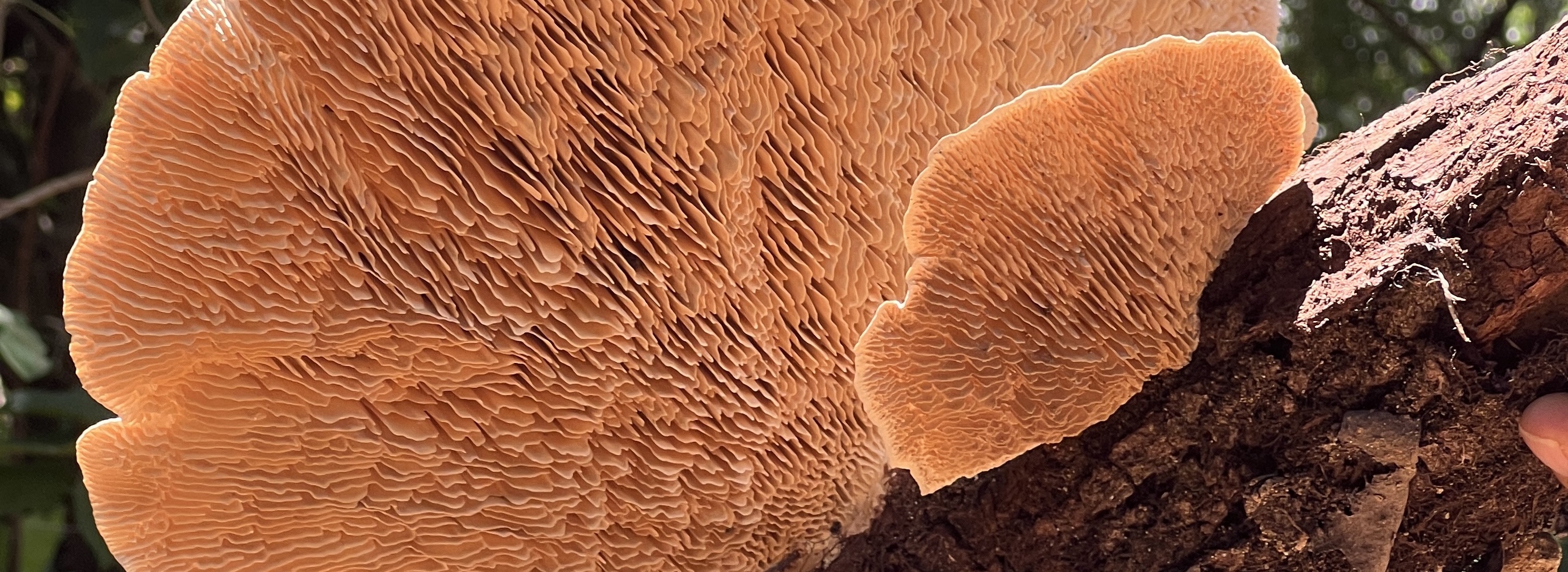
Monteverde Institute: Tropical Ecology and Conservation
Files
Download Full Text (373 KB)
Publication Date
June 2006
Abstract
Mutualisms, beneficial interactions between organisms, are complex and often involve many species. Parasites on mutualisms disrupt the energy exchange and recycling between the mutually benefited species. This experiment explores the mutualism between Cecropia obtusifolia and Azteca xanthacroa and the effects of a parasitic disruption. Levels of fitness were estimated for sapling C. obtusifolia by measuring Müllerian body production and leaf herbivory. In addition, fitness levels of ants were ascertained by using the number of ants actively patrolling the top four nodes of the sapling as an estimation of the colony number. Results demonstrated that the Müllerian body production rate is significantly positively correlated with the number of ants actively patrolling (regression analysis, R2 = 0.530, p-value = 0.0003, n = 20). The number of ants did not significantly correspond with increased percent leaf herbivory, although a trend that an increase in ants conferred a decrease in herbivory was noticed (regression analysis, R2 = 0.093, p-value = 0.205, n = 20). The percent of trichilia infected by a petiole weevil (Curculionidae: Zygopinae), corresponded negatively with the rate of Müllerian body production (regression analysis, R2 = 0.492, pvalue = 0.0006, n = 20). Saplings that had any amount of infested trichilia had significantly less ants patrolling (Mann- Whitney U test: U = 13.5, p-value = 0.0055, n = 20). I also found the greater the degree of trichilia infestation, the higher the levels of herbivory (regression analysis, R2 = 0.286, p-value = 0.015, n = 20). These results suggest that this parasitic interference may reduce the fitness of one or both of the partners in the mutualism.
Resumen
Los mutualismos son las interacciones beneficiosas entre organismos que son complejas y a menudo incluyen a muchas especies. Los parásitos en los mutualismos interrumpen el intercambio de energía y el reciclaje entre las especies mutuamente beneficiadas. Este estudio explora el mutualismo entre Cecropia obtusifolia (guarumo) y Azteca xanthacroa (hormiga del guarumo) y los efectos de una interrupción parasitaria. Los niveles de salud de los árboles se estimaron con plántulas de C. obtusifolia midiendo la producción de cuerpos de Müller y la herbivoría de las hojas. Además, los niveles de salud de las hormigas fueron determinados utilizando el número de hormigas que patrullaban activamente los primeros cuatro nódulos de la plántula como una estimación del número de miembros de la colonia. Los resultados demostraron que la tasa de la producción de los cuerpos de Müller está positiva y significativamente correlacionada con el número de hormigas en patrulla (Regresión simple, R2 = 0,530, el P-valor = 0,0003, N = 20). El número de hormigas no correspondió significativamente con el porcentaje del incremento de herbivoría de las hojas, aunque se notó una tendencia sugiriendo que un aumento en el número de hormigas correspondía a una disminución en la herbivoría (Regresión simple, R2 = 0,093, el P-valor = 0,205, N = 20). El porcentaje de triquilia infectado por un gorgojo del pecíolo (Curculionidae: Zygopinae), correspondió negativamente con la tasa de la producción de cuerpos de Müller (Regresión simple, R2 = 0,492, el P-valor = 0,0006, N = 20). Las plántulas que tuvieron cualquier cantidad de triquilia infectadas mostraron significativamente menos hormigas en patrulla (Mann- Whitney U test: U = 13,5, el P-valor = 0,0055, N = 20). También descubrí que entre más grande el grado de infestación de triquilia, más altos los niveles de herbivoría (Regresión simple, R2 = 0,286, el P-valor = 0,015, N = 20). Estos resultados sugieren que esta interferencia parasitaria puede reducir la salud de uno o de ambos socios en el mutualismo.
Extent
11 pages
Holding Location
Monteverde Institute
Language
English; Spanish
Media Type
Articles
Format
Digital Only
Identifier
M39-00283
Type
Book
Recommended Citation
Edmundson, Scott J., "Effects of weevil parasitismo n a Cecropia-Azteca mutualism, June 2006" (2006). Monteverde Institute: Tropical Ecology and Conservation. 465.
https://digitalcommons.usf.edu/tropical_ecology/465


